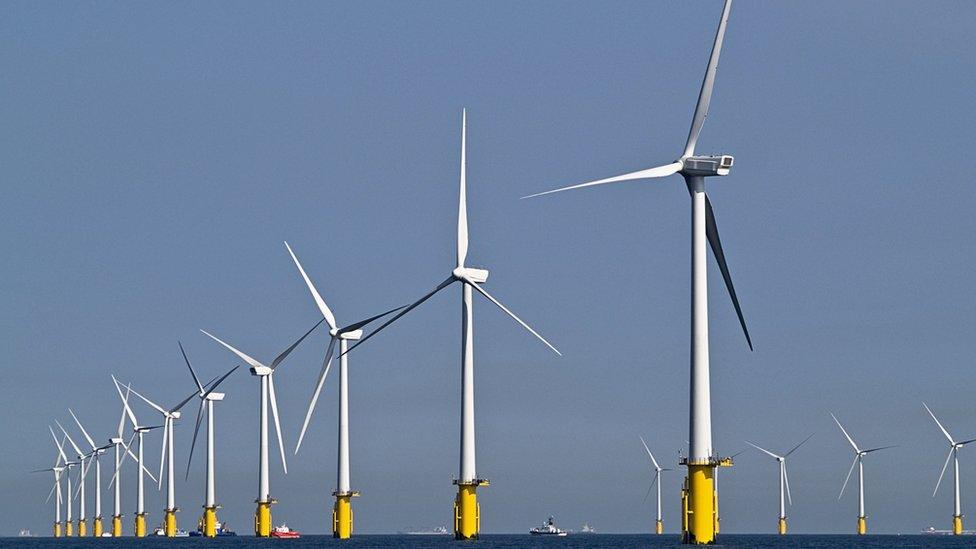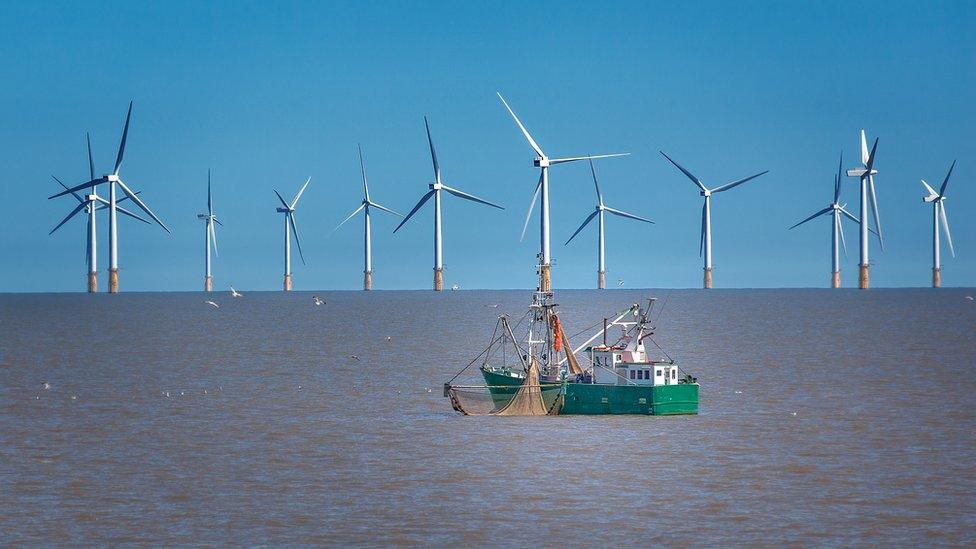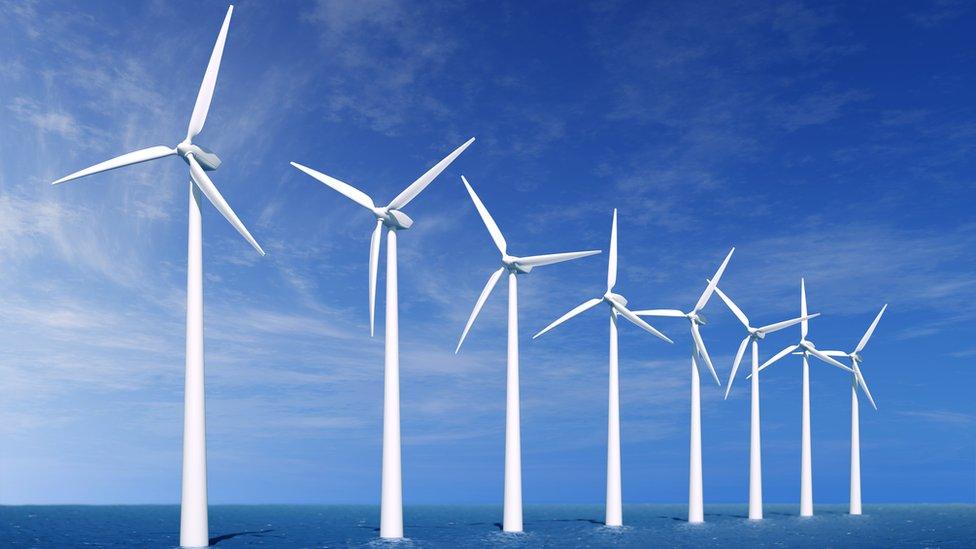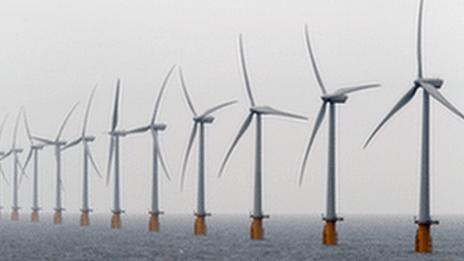NI offshore wind farms would boost jobs and cut emissions - report
- Published

A report on the environmental and economic benefits of offshore wind has concluded it could create hundreds of jobs and cut emissions.
The report, titled the Clean Revolution, looked at how 1.5 GW of power could be generated from offshore wind projects, installed by 2032.
That would be enough to power 1.6 million homes in Northern Ireland.
A Dutch company hopes to install up to 25 floating turbines off the coasts of counties Down and Antrim.
The report, commissioned by RenewableNI, found installing floating offshore windfarms would also offset nearly 50 million tonnes of carbon dioxide emissions, equivalent to taking 1.2 million fossil fuel-powered cars off the road.
Building offshore windfarms is dependent on a leasing round by the Crown Estate, which controls the seabed.
Alun Roberts from BVG Associates, which carried out the report, said government support was key.
"One of the real challenges of the industry is that it's an industry that responds well to strong political signals, and if that message is a little bit diluted or fractured, then I guess that's something that creates uncertainty on the part of the industry.
"So I think if there was a real effort to understand that this is an opportunity that everyone can respond to and have that unity of purpose, then I think that would certainly help."

Northern Ireland was excluded from a previous leasing round in 2019, after a report said "visual impact" would be a "significant issue".
But the same report said offshore windfarms may be a possibility in the future, if technology changed.
An earlier project was scrapped.
'Local issues not insurmountable'
But the industry has changed since then, according to Niamh Kenny who is project director for North Channel Wind and chair of RenewableNI's offshore wind group.
"The technology is much cheaper than it was, so it's easier to build the projects in a cost-effective way," she said.
"A lot of the macro issues that caused some of the delays are now gone, but now we have a lot of micro issues to deal with in order to move on - grid issues, policy and regulatory issues that can be ironed out really simply just by decision-making.
"And those things are not under the influence of anybody except Northern Irish government and Northern Irish policy and decision-makers.
"So they're micro in the sense that we can manage them here locally, we're not at the vagaries of Vladimir Putin or wars or anything else."
Ms Kenny that the issues are "not insurmountable" for local politicians.
"It's just a case of trying to get the political will and motivation," she added.
Related topics
- Published26 July 2019

- Published2 December 2014
